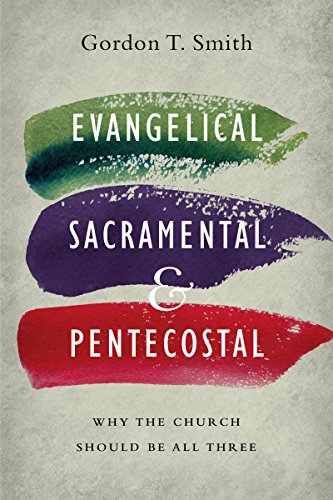Evangelical, Sacramental, and Pentecostal: Why the Church Should Be All Three
 Author(s): Gordon T. Smith
Author(s): Gordon T. SmithPublisher: IVP Academic
Price: $2.99 (Aug 14-15)
Evangelical. Sacramental. Pentecostal.
Christian communities tend to identify with one of these labels over the other two. Evangelical churches emphasize the importance of Scripture and preaching. Sacramental churches emphasize the importance of the eucharistic table. And pentecostal churches emphasize the immediate presence and power of the Holy Spirit. But must we choose between them? Could the church be all three?
Drawing on his reading of the New Testament, the witness of Christian history, and years of experience in Christian ministry and leadership, Gordon T. Smith argues that the church not only can be all three, but in fact must be all three in order to truly be the church. As the church navigates the unique global challenges of pluralism, secularism, and fundamentalism, the need for an integrated vision of the community as evangelical, sacramental, and pentecostal becomes ever more pressing. If Jesus and the apostles saw no tension between these characteristics, why should we?
